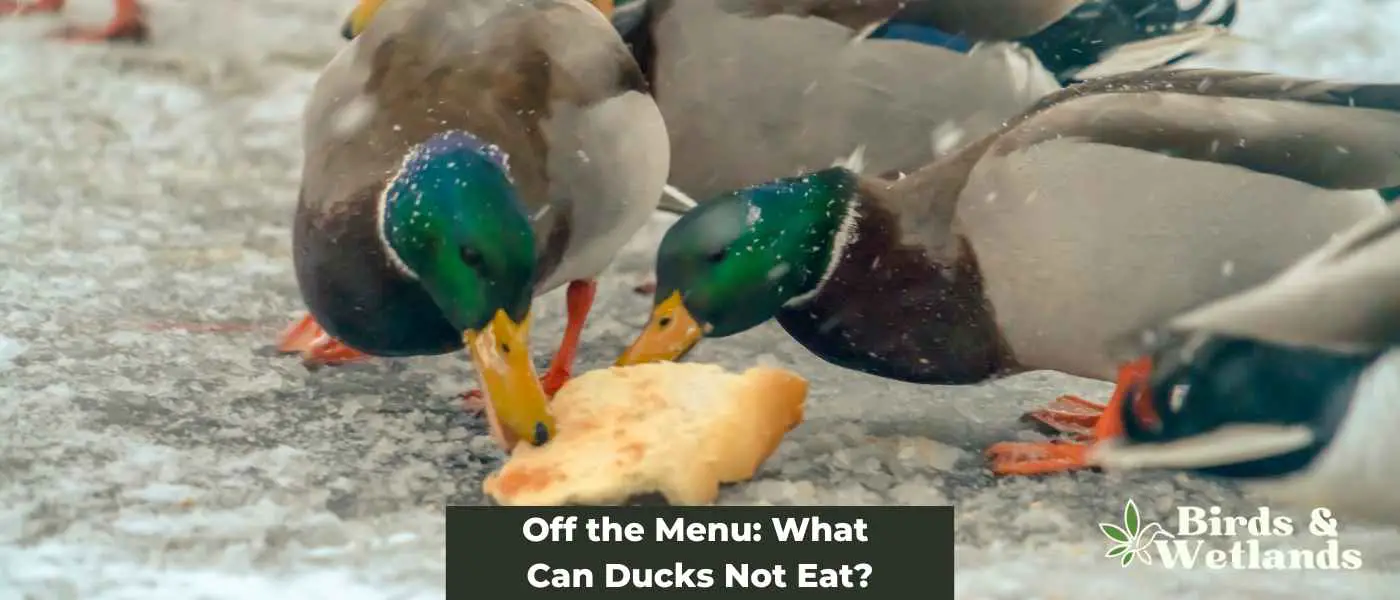Ducks are lovely creatures that can be found in many parks, ponds, and lakes around the world and feeding ducks can be a joyous activity.
However, not all foods are safe for ducks to eat. In fact, some foods can be toxic to them.
So what foods can ducks not eat?
Ducks should not eat certain foods as they can cause health issues or provide little to no nutritional value. Some items to avoid include bread, salty snacks, processed foods, chocolate, avocado, caffeine, onions, garlic, alcohol, and fruit pits or seeds. These foods can be harmful or even toxic to ducks, so it’s crucial to provide a balanced diet with appropriate alternatives.
Key takeaways
Dos
- Feed ducks cracked corn, oats, rice, or birdseed
- Provide fresh, chopped vegetables and fruits
- Offer leafy greens like lettuce, kale, or spinach
- Supply small insects, snails, and aquatic plants
- Give frozen peas as a nutritious treat
- Provide fresh water daily
- Offer calcium sources like crushed oyster shells
Don’ts
- Avoid feeding ducks bread or junk food
- Don’t offer onions, garlic, avocado, or raw potatoes
- Keep ducks away from chocolate or caffeinated products
- Refrain from giving ducks large amounts of green tomatoes
- Avoid feeding ducks unripe or overripe fruits
- Don’t leave uneaten food lying around
What Ducks Can’t Eat
Ducks are known to be voracious eaters, but not all foods are safe for them to consume. Feeding ducks inappropriate foods can lead to health problems and even death. The food ducks should avoid fall into the following categories:
Processed Foods
Toxic Foods
Unsafe Fruits and Vegetables
Inappropriate Plant Matter
Here are some of the foods that ducks should avoid:
Processed Foods
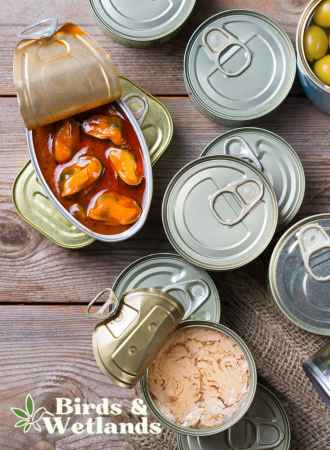
Feeding ducks a balanced and nutritious diet is essential to maintaining their overall health and well-being. However, certain processed foods can have detrimental effects on ducks’ health and should be avoided.
These foods may not provide the necessary nutrients for ducks and can even cause severe health issues if consumed regularly.
Lack of nutritional value
Bread, crackers, cookies, and popcorn are common foods that many people mistakenly believe are harmless to feed ducks. However, these processed foods lack the essential nutrients, vitamins, and minerals that ducks need to thrive.
Instead, they are often high in carbohydrates, which can lead to an imbalanced diet for ducks.
Malnutrition and obesity risks
Feeding ducks processed foods like bread, crackers, cookies, and popcorn can lead to malnutrition, as they do not receive the necessary nutrients for proper growth and development. Too much food, especially junk food causes major issues for ducks.
These high-carbohydrate foods can contribute to obesity, a common health issue in ducks that can result in joint problems, heart disease, and other complications so don’t feed ducks bread or junk food (though whole wheat bread is ok occasionally – especially if it contains sunflower seeds).
Processed foods high in salt and sugar
Dehydration and kidney damage
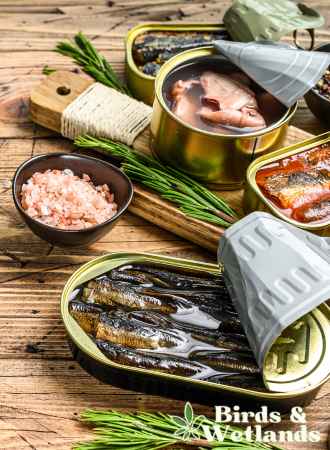
Processed salty foods that are high in salt and sugar can be harmful to ducks. Consuming high levels of salt can lead to dehydration, as ducks’ bodies try to flush out the excess sodium. Over time, this can cause kidney damage and affect their overall health. Similarly, foods with high sugar content can lead to an imbalanced diet, causing obesity and other health issues.
Imbalanced diet and health issues
Feeding ducks processed foods high in salt and sugar can result in an imbalanced diet, as they do not provide the necessary nutrients for optimal health. Over time, this can lead to a range of health issues, including obesity, heart disease, joint problems, and a weakened immune system.
To maintain the health and well-being of ducks, it is essential to provide them with a balanced diet that includes a variety of natural, nutrient-rich foods.
Toxic Foods
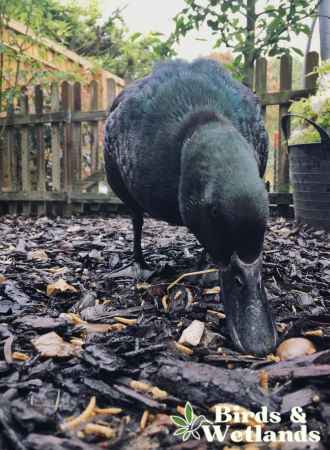
Certain human foods and substances can have severe consequences for ducks, so it is crucial to ensure they do not have access to these dangerous items.
Chocolate
Theobromine toxicity
Chocolate contains a compound called theobromine, which is toxic to ducks and other animals. Ducks are unable to metabolize theobromine effectively, causing it to build up in their system and lead to toxicity. Theobromine affects the central nervous system, heart, and kidneys, resulting in a range of symptoms and complications.
Symptoms and potential fatal consequences
Symptoms of theobromine toxicity in ducks may include increased heart rate, excessive thirst, vomiting, diarrhea, muscle tremors, seizures, and even death. If you suspect your duck has ingested chocolate, it is vital to seek veterinary care immediately, as early intervention can improve their chances of recovery.
Onions and garlic
Hemolytic anemia from damaged red blood cells
Onions and garlic contain compounds called thiosulphates, which are toxic to ducks. When ducks consume these foods, the compounds can damage their red blood cells, leading to a condition called hemolytic anemia. This results in a reduced ability to carry oxygen throughout the body and can cause severe illness or death.
Weakness, illness, and life-threatening complications
Symptoms of hemolytic anemia in ducks include weakness, rapid breathing, pale mucous membranes, and lethargy. In severe cases, ducks may suffer from organ failure, shock, and death. It is essential to avoid feeding ducks onions or garlic to protect their health and well-being.
Avocado

Persin toxicity
Avocado contains a fungicidal toxin called persin, which is toxic to ducks and other animals. Ingesting avocado can cause ducks to suffer from respiratory distress, heart problems, and other complications.
Respiratory distress and heart problems
Symptoms of avocado toxicity in ducks may include difficulty breathing, coughing, weakness, and fluid accumulation around the heart. In severe cases, ducks may experience heart failure and death. To protect the health of ducks, it is crucial to avoid feeding them avocado or allowing them access to areas where avocado trees are present.
Caffeine
Stimulant effects on the nervous system
Caffeine is a stimulant that affects the central nervous system of ducks, causing a range of symptoms and potential complications. Ducks are much more sensitive to the effects of caffeine than humans, and even small amounts can cause severe issues.
Rapid heartbeat, seizures, and potential death
Symptoms of caffeine toxicity in ducks include rapid heartbeat, hyperactivity, muscle tremors, seizures, and even death. To ensure the health and safety of ducks, it is essential to keep them away from caffeinated beverages and foods containing caffeine.
Beans and Thin-Shelled Eggs
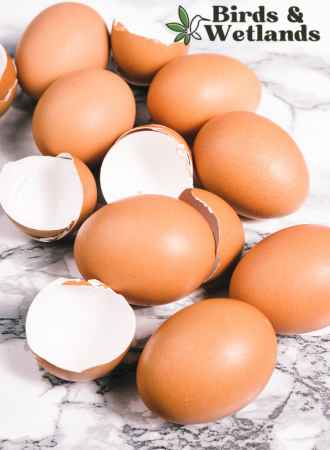
Raw or dried beans should not be fed to ducks. These foods contain a toxin called lectin, which can cause digestive problems and even death in ducks nad raw beans also contain phytohaemagglutinin (kidney beans especially).
Feeding ducks foods that are high in oxalic acid, such as spinach and rhubarb, can also interfere with calcium absorption and lead to thin-shelled eggs. Cooked beans and cooked eggs are perfect and ducks love scrambled eggs so several eggs a week are fine.
Unsafe Fruits and Vegetables
Ducks can benefit from a balanced diet that includes a variety of fruits and vegetables. However, certain fruits and vegetables can be unsafe or even toxic to ducks and should be avoided. Being aware of these unsafe foods can help ensure the health and well-being of ducks under your care.
Green tomatoes and unripe fruits
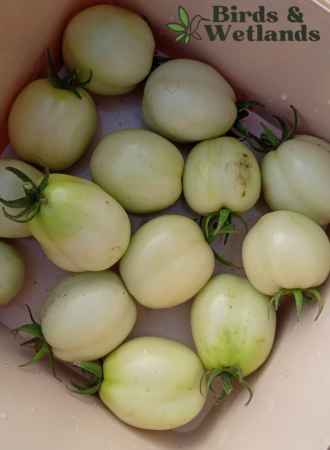
Solanine toxicity in green tomatoes
Green tomatoes contain a toxic compound called solanine, which can be harmful to ducks if ingested. Solanine is a natural defense mechanism in tomatoes to deter predators while the fruit is still developing. Once the tomato ripens, the solanine levels decrease significantly, making them safe for consumption.
Gastrointestinal issues and potential neurological effects
Ingesting solanine can cause gastrointestinal issues in ducks, such as diarrhea, vomiting, and abdominal pain. Solanine can have neurological effects, leading to symptoms like lethargy, muscle weakness, and even seizures. It is essential to avoid feeding ducks green tomatoes to prevent these health issues.
Similarly, unripe fruits can also be unsafe for ducks, as they may contain toxic compounds or be difficult for them to digest.
Fruit pits and seeds
Choking hazard
Fruit pits and seeds can pose a choking hazard to ducks, as they may be too large or difficult for them to swallow. To avoid this risk, always remove pits and seeds from fruits before offering them to ducks.
Cyanide toxicity in some fruit seeds
Some fruit seeds, such as those found in apples, cherries, and apricots, contain small amounts of cyanide-producing compounds called amygdalin. Ingesting large quantities of these seeds can release cyanide in ducks’ bodies, leading to cyanide poisoning.
Symptoms of cyanide poisoning include difficulty breathing, tremors, and seizures, which can be fatal in severe cases. To protect ducks from this risk, avoid feeding them fruit seeds that contain cyanide-producing compounds.
Potatoes and nightshade plants
Potatoes, especially green or sprouted ones, and other members of the nightshade family (such as eggplants and bell peppers) can also be harmful to ducks. Cooked potatoes and sweet potatoes are fine but avoid green potatoes.
These plants contain solanine or other toxic alkaloids, which can cause gastrointestinal distress, neurological issues, and other health problems. It is essential to avoid feeding ducks potatoes or other nightshade plants to ensure their safety and well-being.
Citrus Fruit
Citrus fruits like oranges and lemons should also be avoided. These fruits contain a high level of citric acid, which can cause digestive problems in ducks.
Inappropriate Plant Matter
Feeding ducks an appropriate diet is crucial to their overall health and well-being. While many plants are safe and beneficial for ducks, some plant matter can be harmful or even toxic.
It is essential to be aware of these potentially dangerous plants and ensure that ducks do not have access to them.
Rhubarb leaves
Rhubarb leaves are one such plant that poses a significant risk to ducks. Although the stalks of rhubarb are safe for human consumption, the leaves contain high levels of oxalic acid, which is toxic to ducks and other animals.
Oxalic acid can cause a range of issues in ducks, including gastrointestinal distress, difficulty breathing, and seizures.
Oxalic acid toxicity
When ducks consume rhubarb leaves, the oxalic acid can bind to calcium in their bloodstream, leading to a condition called hypocalcemia. This condition results in reduced calcium levels, which can affect muscle function, heart health, and blood clotting.
In severe cases, hypocalcemia can lead to tremors, muscle weakness, and even paralysis.
Kidney damage and potential death
In addition to its effects on calcium levels, oxalic acid can also cause kidney damage in ducks. The acid forms crystals in the kidneys, which can lead to inflammation, decreased kidney function, and ultimately, kidney failure. If left untreated, kidney failure can be fatal to ducks.
To protect the health of ducks, it is crucial to avoid feeding them rhubarb leaves or allowing them access to areas where rhubarb is growing.
Foxglove, nightshade, and other toxic plants
There are several other plants that can be poisonous to ducks, such as foxglove, nightshade, and members of the Solanaceae family. These plants contain toxic compounds that can cause severe illness or death in ducks if ingested.
Poisonous effects on ducks
The toxic compounds found in these plants can affect ducks in various ways, depending on the specific plant and the amount consumed. Foxglove, for example, contains compounds called cardiac glycosides, which can disrupt heart function and cause heart failure.
Nightshade plants, on the other hand, contain alkaloids that can cause gastrointestinal distress, muscle weakness, and respiratory issues.
Symptoms and life-threatening consequences
The symptoms of plant toxicity in ducks may include lethargy, loss of appetite, difficulty breathing, vomiting, diarrhea, seizures, and even death. If you suspect that your duck has ingested a toxic plant, it is crucial to seek veterinary care immediately. Early intervention can help to minimize the damage and increase the chances of a full recovery.
It is important for when raising ducks to be aware of the foods that their feathered friends can and cannot eat. By avoiding the foods mentioned above, duck owners can help ensure that their ducks stay healthy and happy. Ensure your duck food is healthy, whether that’s buying specific duck feed for your duck flock from your local feed store or providing a wide range of healthy food for your ducks.
Best Waterfowl Feed
Delightful Feeding Experience
Transform your backyard into a scenic waterfowl habitat and enjoy an interactive feeding experience with Natural Waterscapes Waterfowl Floating Food.

Pros
- Nutritious Food: Natural Waterscapes Waterfowl Floating Food is specifically designed to provide essential nutrients to waterfowl, including swans, geese, and ducks, helping them maintain a healthy diet.
- Convenient: The food comes in resealable packaging, making it easy to store and use as needed. It is also easy to handle and transport.
- Floating Formula: The floating formula of the food allows it to remain on the surface of the water, making it easier for waterfowl to eat and minimizing the risk of water contamination.
- Attracts Waterfowl: The food is formulated to attract various waterfowl species, including swans, geese, and ducks, to your pond, lake, or other water body, providing an opportunity to observe and enjoy these beautiful creatures.
- Environmentally Friendly: Natural Waterscapes Waterfowl Floating Food is made with environmentally friendly ingredients and does not contain any harmful preservatives, making it safe for both waterfowl and the environment.
Cons
- Shelf Life: The food’s shelf life may be limited compared to other types of waterfowl food due to its natural ingredients and lack of preservatives. This means you may need to use it up quickly after opening the package to prevent it from going bad.
Health Issues
Ducks are generally hardy birds, but they can still suffer from health problems if they are not fed a balanced diet. Some foods can cause serious health issues especially for young birds, and it’s important to know what to avoid feeding your ducks to keep them healthy.
Calcium Absorption and Kidney Failure
Ducks need calcium to maintain healthy bones and eggshells, but too much calcium can lead to kidney failure. Some foods that are high in calcium, such as dairy products, should be fed in moderation. Ducks need vitamin D to absorb calcium, so if they don’t get enough sunlight or a supplement, they may not absorb calcium properly.
Angel Wing and Sudden Death
Angel wing is a condition that affects some duck breeds and wild ducks, especially larger waterfowl. It causes the last joint of the wing to twist outward, making it impossible for the bird to fly. This condition is caused by a diet that is too high in protein and low in essential nutrients. Sudden death can also occur if ducks are fed too much protein or if they are not given enough space to exercise.
Choking Hazard and Twist Ties
Ducks do not have teeth, so they cannot chew their food properly. This means that any food that is too large or too hard can become a choking hazard. Ducks will often eat anything they find, including uneaten leftovers or items like twist ties and plastic clips.
These can cause blockages in the digestive system, leading to serious health problems.
Stop feeding them if you notice any health problems or if you notice food uneaten, and make sure they have access to clean water and a pond nearby. By taking good care of your ducks, you can ensure that ducks thrive and live a long and healthy life, have appropriate weight gain and enjoy great food.
Best Duck Feed Pellets
Are you a duck owner looking for the perfect feed to keep your feathered friends happy and healthy? Look no further than Purina Duck Feed Pellets! With their nutritionally balanced formula and high-quality ingredients, these pellets are the ultimate solution for providing your ducks with the nutrition they need to thrive.
Pros
- Complete Nutrition: Purina Duck Feed Pellets are nutritionally balanced to provide all the essential vitamins and minerals that ducks need to stay healthy and strong.
- Easy to Digest: The pellets are specially formulated to be easy to digest, which makes them ideal for ducks of all ages.
- Promotes Growth and Development: With its balanced nutrition formula, Purina Duck Feed Pellets are designed to support healthy growth and development in ducks.
- Suitable for All Breeds: Whether you have domestic ducks or wild ducks, Purina Duck Feed Pellets are suitable for all breeds of ducks.
- Trusted Quality: Purina has been producing high-quality animal feed for over 100 years, so you can trust that your ducks are getting the best possible nutrition with Purina Duck Feed Pellets.
Cons
- Cost: Compared to other types of duck feed on the market, Purina Duck Feed Pellets can be slightly more expensive. However, many customers feel that the high-quality ingredients and balanced nutrition formula are worth the extra investment.
- Pellet Size: Some customers have noted that the pellet size of Purina Duck Feed Pellets can be quite large, which may not be suitable for smaller or younger ducks. However, many customers have reported that the pellets can easily be broken up or soaked in water to make them easier to eat.
FAQS on what can ducks eat and not eat
What should you not feed ducks?
It is crucial to avoid feeding ducks certain foods that can be harmful to their health. Avoid giving them bread, crackers, cookies, popcorn, and other processed foods, as these lack nutritional value and can lead to health issues such as malnutrition, obesity, and digestive problems.
Also, refrain from feeding them chocolate, avocado, onions, garlic, and caffeine, as these foods can be toxic to ducks.
What is poisonous to ducks?
Some substances and foods are poisonous to ducks and should be strictly avoided. Toxic foods for ducks include chocolate, avocado, onions, garlic, and caffeine. Certain plants, such as foxglove, rhubarb leaves, and nightshade, can be harmful to ducks.
It is essential to be aware of these poisonous substances and ensure that ducks do not have access to them.
What foods can ducks eat?
Ducks can eat a variety of natural, nutritious, and unprocessed foods. Their diet should include whole grains like cracked corn, oats, barley, wheat, rice, and millet, which provide essential carbohydrates, protein, and fiber.
Ducks can also consume vegetables, leafy greens, and fruits, such as peas, lettuce, kale, spinach, cabbage, carrots, squash, pumpkin, grapes, and berries. Ducks can eat small insects, snails, and other invertebrates, as well as aquatic plants, which are often part of their natural diet. Brewer’s yeast is a great treat for these birds to give them a niacin boost.
If you are giving chick starter feed, ensure it is not medicated which some claim have adverse effects on ducks.
What fruits and vegetables can ducks eat?
Ducks can eat a wide range of fruits and vegetables as part of a balanced and nutritious diet. Some suitable fruits and vegetables for ducks include peas, lettuce, kale, spinach, cabbage, broccoli, carrots, squash, pumpkin, watermelon, grapes, strawberries, blueberries, and raspberries.
When feeding fruits and vegetables to ducks, ensure they are fresh, chopped into small pieces, and free from pesticides or other chemicals.
What vegetables can ducks not eat?
Some vegetables are not suitable for ducks due to their potential toxicity or negative effects on their health. Avoid feeding ducks onions, garlic, raw potatoes, and avocado, as these can be harmful to them. It is best to stick to a variety of leafy greens, non-toxic vegetables, and fruits to provide ducks with a balanced and healthy diet.
What fruits and vegetables can ducks not eat?
There are certain fruits and vegetables that ducks should not eat due to potential toxicity or negative effects on their health. Avoid feeding ducks avocado, onions, garlic, and unripe or large quantities of green tomatoes, as these can be harmful to them. When providing fruits and vegetables to ducks, it is essential to ensure they are fresh, chopped into small pieces, and free from pesticides or other chemicals.
Stick to a variety of leafy greens, non-toxic vegetables, and fruits to maintain a balanced and healthy diet for ducks. When feeding lettuce avoid iceberg lettuce as it has little nutritional value and ensure there is clean water for the ducks drink.

